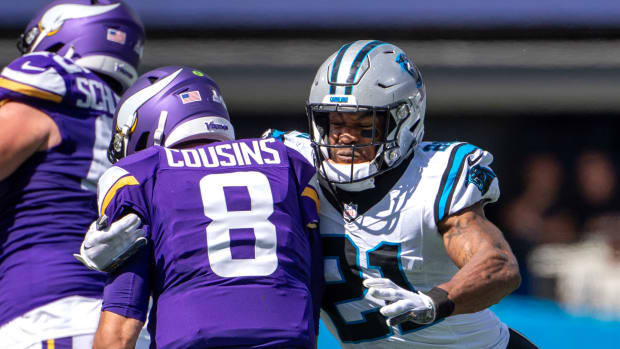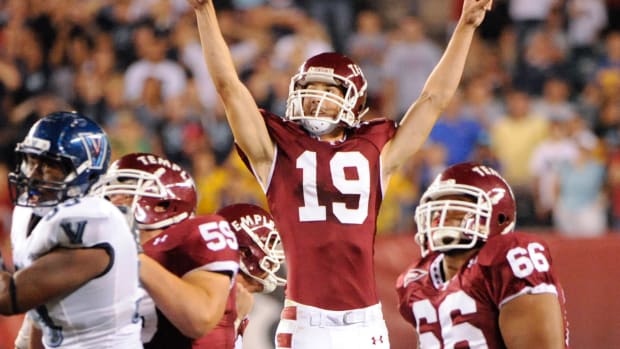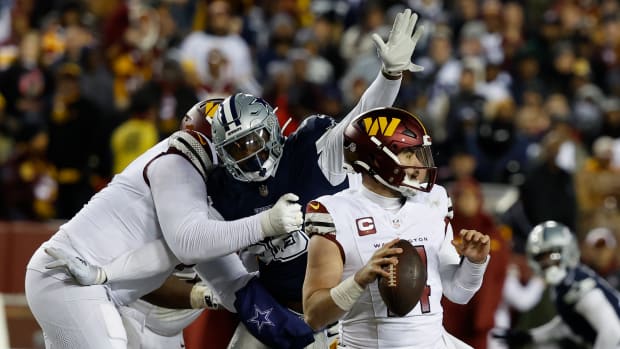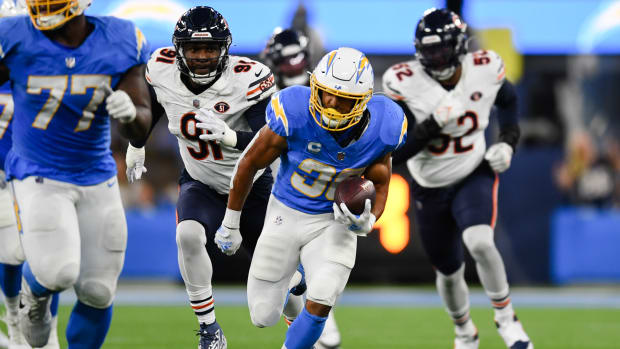Schaffer's Smarts Makes it Easier for 'Skins to Move on
The Redskins made the easy decision last week, letting go of Josh Norman and Paul Richardson.
Some fans and pundits have said that Jordan Reed is an easy decision too. He's not.
For health reasons - it's not an easy decision for Reed, who remains in concussion protocol.
For the Redskins it is an easy financial decision but because of their extreme need at the tight end position, it shouldn't be.
In my opinion, both sides should be open to a dramatically reduced contract structure with a thorough incentive package, which of course is based on play time and performance.
Going back to the easy money part - it's my belief that former Redskins Senior Vice President of Football Operations, Eric Schaffer, put the Redskins in a good position to move on from Reed and even Ryan Kerrigan this year, if they choose to do so.
Here's what I mean: Reed has two years left on his contract and ZERO guaranteed money remaining. No guaranteed base salary or anything.
Reed has only a $1.8 million signing bonus proration on the 2020 payroll in the form of a "dead cap hit" if the Redskins are to move on as expected.
He has no dead cap hit from his signing bonus proration in 2021, because of the five-year maximum proration rule
The Redskins will be essentially saving $8.75 million in 2021 AND the $8.25 million (per OvertheCap.com) from this year with only the $1.8 million cap penalty. That's a total of $15.2 million worth of cap savings over the next two years, while everyone focuses on just THIS year.
It's a bonus to a contract extension as opposed to going out on the free agent market and signing players you don't know to a big money deal. The final year of Reed's rookie contract was folded into the extension and allowed the Redskins to protect themselves better on the back end.
You must look at this way as well. On most lucrative long-term deals (Josh Norman for example), because the signing bonus and fully guaranteed money are so large, most teams have to spread out the bonus over the maximum five years and the contract term is the same length leading to dead money if you are cutting the player in the final year of his deal. The Redskins had to take a $3 million dead cap charge to cut Norman Friday.
Or it's double dead money if you are chopping him before (Paul Richardson) the final year of his contract. $6 million dead cap charge to cut Richardson after just two years of a five year deal.
For Kerrigan, who will be 32 by the start of the season and is coming off his first injury shortened year and the worst year of his career - the Redskins could move on from him with no dead money this year if they trade him or release him.
Kerrigan has an $11.5 million non-guaranteed base salary in 2020, the final year of his extension signed in July of 2015.
Kerrigan was given a total guarantee of just under $24 million per OvertheCap.com in 2015 but because of the extension, the Redskins were able to roll in a portion of the guarantees in what was the final year of his rookie deal.
That left the final year of his extension very moveable if the Redskins choose to move on from him.
Maybe it was a convenient marriage for both sides and the rules along with circumstances purely led to this but I also think that Schaffer put some good thought into protecting the Redskins and making it easier to move on, when players start to break down like Reed definitely has and like Kerrigan might be.
Chris Russell is the Publisher of RedskinsReport.com & Sports Illustrated's Washington Redskins channel. He can be heard on 106.7 The FAN in the Washington D.C. area and world-wide on Radio.com. Chris also hosts the "Locked on Redskins" Podcast and can be read via subscription to Warpath Magazine. You can e-mail Chris at russellmania09@Gmail.com or follow him on Twitter at @Russellmania621.





